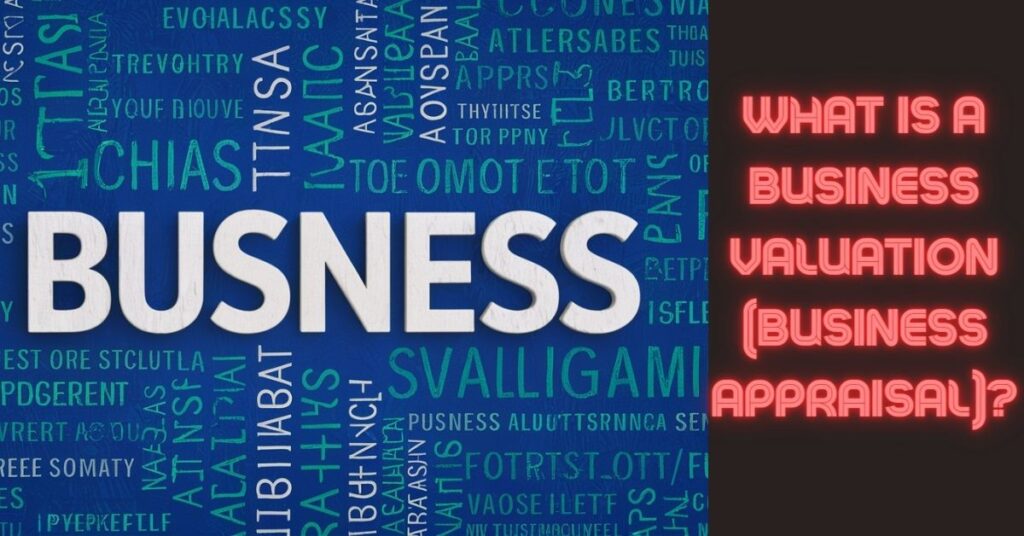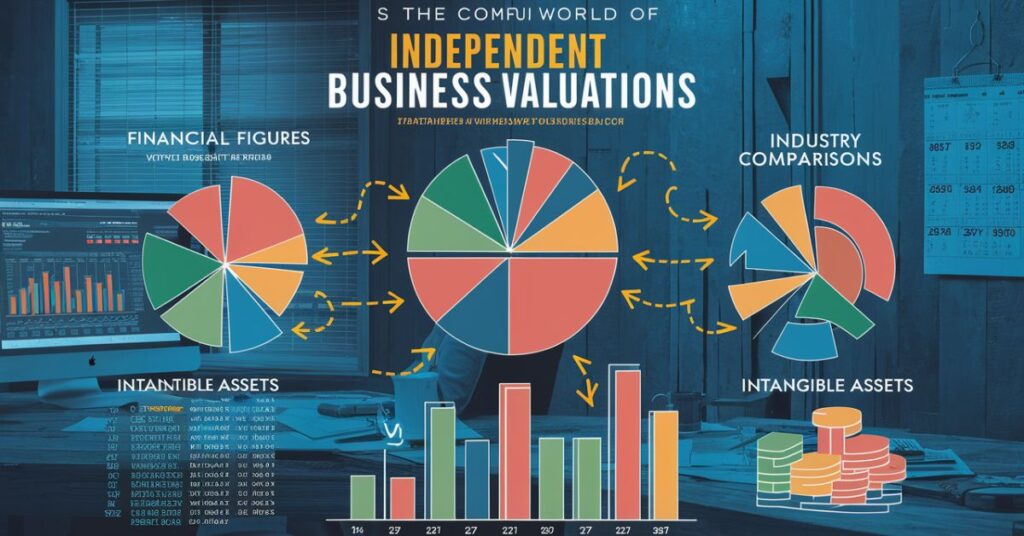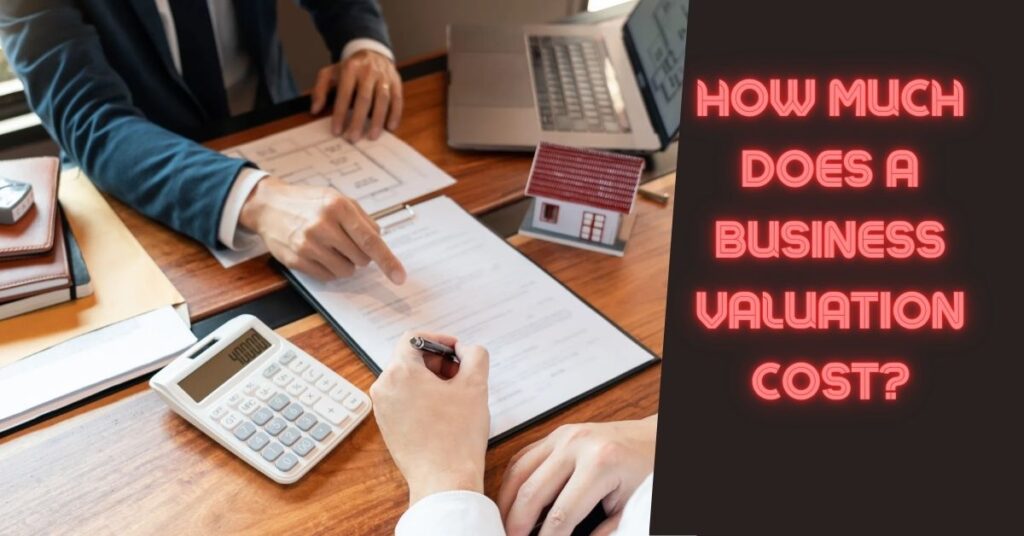A business valuation is the process of determining the economic value of a business or company. It involves assessing various factors such as assets, liabilities, cash flow, and market conditions to arrive at an accurate estimate of the business’s worth.
Curious about the cost of valuing your business? Wondering if it’s worth the investment? Let’s dive into the intricacies of business valuation costs and shed some light on what factors influence the pricing.
If you’re exploring the idea of getting your business valued, you’re in the right place. Understanding the cost involved in this crucial process can help you make informed decisions and pave the way for the future success of your business. Stick with us to learn more about business valuation costs and how they can impact your bottom line.
What is a business valuation (business appraisal)?

A business valuation, also known as a business appraisal, is the process of determining the economic value of a business entity. This assessment involves analyzing various factors such as assets, liabilities, cash flow, and market conditions to arrive at an accurate estimation of the business’s worth. Essentially, a business valuation provides insight into how much a business is worth in the marketplace. It is a critical tool used by business owners, investors, and stakeholders for various purposes, including:
- Selling or Buying a Business: Business valuations help sellers set a fair asking price for their business and assist buyers in assessing whether the proposed purchase price aligns with the business’s true value.
- Mergers and Acquisitions: In merger and acquisition transactions, accurate valuations ensure that both parties negotiate a fair deal based on the intrinsic value of the businesses involved.
- Obtaining Financing: Lenders often require business valuations to assess the collateral value of a business before extending loans or lines of credit.
- Estate Planning and Succession: Valuations play a crucial role in estate planning, helping business owners determine the value of their assets for inheritance purposes. They also assist in succession planning by guiding decisions related to passing the business on to heirs or selling it.
- Legal and Regulatory Compliance: Business valuations may be required for various legal purposes, including divorce proceedings, shareholder disputes, tax reporting, and compliance with regulatory requirements.
Overall, business valuations provide stakeholders with essential insights into the financial health, performance, and market position of a business, empowering informed decision-making and strategic planning.
Why are business valuations important?
Business valuations hold significant importance for various reasons, particularly in the realm of strategic decision-making and financial planning.
Firstly, they provide business owners with a clear understanding of their company’s true worth, enabling informed decisions regarding potential mergers, acquisitions, or sales. Moreover, accurate valuations facilitate effective succession planning and estate management, ensuring smooth transitions in ownership and leadership.
Additionally, valuations assist in obtaining financing by providing lenders with a reliable assessment of the business’s collateral value. Furthermore, they play a crucial role in legal and regulatory compliance, helping businesses adhere to tax reporting requirements and resolve disputes with shareholders or partners.
Overall, business valuations serve as invaluable tools for assessing performance, mitigating risks, and maximizing opportunities for growth and prosperity.
Factors, figures and how independent business valuations work

The intricacies of independent business valuations is crucial for business owners seeking accurate assessments of their company’s worth. These valuations consider various factors and figures, including financial statements, revenue streams, assets, liabilities, and market conditions.
Independent valuation experts meticulously analyze these components to derive a comprehensive understanding of the business’s value. By employing standardized methodologies and industry best practices, independent valuations ensure impartial and unbiased assessments. These assessments serve as vital tools for strategic decision-making, facilitating informed choices regarding mergers, acquisitions, sales, financing, and legal compliance.
Overall, independent business valuations provide businesses with actionable insights to navigate complex financial landscapes and optimize their growth trajectories.
Also Read(WHAT MUST AN ENTREPRENEUR ASSUME WHEN STARTING A BUSINESS)
How much does it cost to value a business?
Business valuation costs vary widely based on factors like the size and complexity of the business, ranging from free services offered by brokers to tens of thousands of dollars for comprehensive valuations by certified professionals.
How do valuations work?
Valuations involve assessing various factors such as financial statements, market conditions, and industry trends to determine the economic worth of a business. Independent valuation experts employ standardized methodologies to ensure accurate and unbiased assessments, providing valuable insights for strategic decision-making.
What are the different types of valuation?

Preliminary valuation – Free: Offers a basic assessment of a business’s value, typically based on turnover or profit, and is often provided by brokers or advisors as a guideline for sellers.
Comprehensive valuation report – $5,000 – $30,000: Involves a thorough analysis of the business’s financials, market position, and future prospects, conducted by corporate advisors or M&A firms to provide detailed insights for strategic decision-making.
Detailed research report – $20,000 – $50,000: Utilizes extensive research and sophisticated pricing models to analyze industry trends, market dynamics, and competitive landscape, catering to large investors and businesses with complex valuation needs.
The Complexity of the Valuation
Valuation complexity varies based on factors like business size and structure, influencing the time and expertise required for assessment.
The Type of Valuation:
Valuations can be legal or fair market, each with distinct methodologies and standards tailored to specific business needs.
The Type of Data Sources Used for the Valuation:
Valuations rely on diverse data sources, including industry comparables, financial statements, and market trends, ensuring comprehensive analysis and accuracy.
How Deeply Financials are Analyzed for the Valuation:
The depth of financial analysis depends on the valuation provider’s approach, ranging from basic scrutiny to meticulous examination of transactions and performance metrics.
Also Read(WHAT IS BUSINESS CHAT ON INSTAGRAM)
The Size of the Company
Company size plays a pivotal role in valuation complexity and cost, with larger businesses often requiring more extensive assessments due to their intricate structures and operations. This factor influences the depth of analysis and the level of expertise needed to accurately determine the company’s value.
The size of a company significantly impacts the complexity and cost of a business valuation.
- Larger companies tend to have more intricate operations and financial structures, requiring extensive analysis and expertise for valuation.
- Multiple locations, diverse departments, and complex accounting systems contribute to the intricacy of valuations for larger enterprises.
- Size also influences the timeline for valuation completion, with larger companies often requiring longer assessment periods to ensure accuracy and thoroughness.
The Timeline for Your Valuation

The timeline for a business valuation can vary depending on several factors, including the complexity of the business, the availability of data, and the urgency of the request.
In some cases, a valuation may be needed urgently, such as during partnership disputes or when seeking immediate financing. In such situations, businesses can opt to expedite the valuation process by paying for faster turnaround times.
However, most valuations typically take a couple of weeks to complete, allowing valuation experts sufficient time to gather and analyze data, conduct thorough assessments, and generate comprehensive reports. By understanding the timeline for their valuation, businesses can effectively plan and strategize for future financial decisions.
Get the Best Deal For Your Business Valuation
To ensure you receive the most value for your business valuation, it’s essential to explore various options and negotiate effectively. Start by researching different valuation providers and comparing their services and pricing structures. Don’t hesitate to negotiate fees and terms to align with your budget and needs. Additionally, consider alternative valuation options, such as preliminary assessments or consultations, which may offer valuable insights at a lower cost. By being proactive and strategic in your approach, you can maximize the benefits of your business valuation while minimizing expenses.
Conclusion
The nuances of business valuation are crucial for making informed decisions about the worth and potential of your enterprise. Whether you’re preparing to sell, seeking financing, or planning for the future, a well-executed valuation can provide invaluable insights. By considering factors such as the complexity of the valuation, the type of data sources used, and the size of your company, you can navigate the valuation process effectively. Remember to explore different valuation options, negotiate fees, and seek the best deal possible to ensure you receive maximum value for your investment. With careful consideration and strategic planning, a comprehensive business valuation can serve as a powerful tool for driving growth and success in your business endeavors.
FAQs
How much does it cost to have a business valued?
Costs vary widely, ranging from free to tens of thousands.
What is the average cost of a valuation?
Average cost ranges from $5,000 to $30,000.
How do I calculate the value of my business?
Value depends on assets, revenue, and market conditions.
How much is a valuation fee?
Valuation fees can range from $0 to $40,000.







